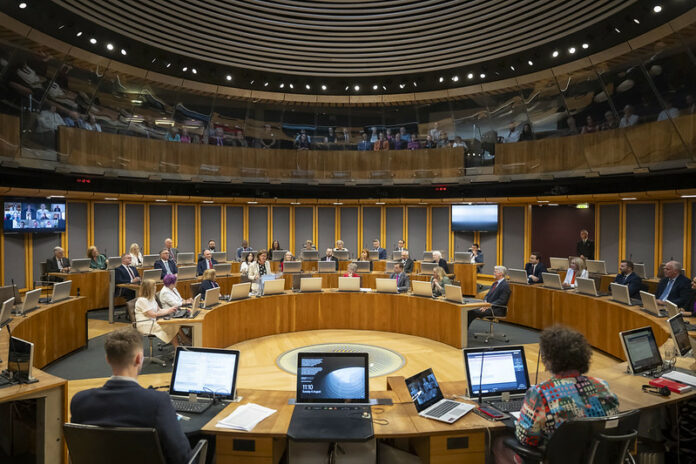The Welsh Parliament rejects changing assisted dying laws today by 26 votes to 19. Welcoming the result Dr Gordon Macdonald, CEO of for Care Not Killing, commented:
“This is an encouraging result and proves the more people, including parliamentarians hear about implications of legalising state assisted killing the more they reject changing the law, because they see how it would put pressure on the elderly, terminally ill and disabled people to end their lives prematurely. This is exactly what we have seen in the handful of places who have legalised state assisted killing.
“In Oregon the model most often advanced by pro-death advocates, a majority of those ending their lives consistently cite fear of being a burden on their families, finances or carers as a reason. And those ingesting the death row drugs, far from having a quick and painless death, slowly drown in their own secretions and die of what doctors call a pulmonary oedema – in some cases this can take days.
“There are other problems too. In the Netherlands and Belgium limits on who qualifies for an assisted death have been swept away. No longer is state aided killing limited to those with less than six months to live, but routinely includes disabled people, those with non-terminal conditions, even mental health problems, such as patients with treatable depression and eating disorders.
“In Canada in 2022, around 1,700 of those who’s lived were ended by euthanasia cited loneliness as a reason. At the same we have seen cases of disabled military veterans even a Paralympian being offered “an assisted death” rather than the care and support they need to live independent lives. While according to an official report from the Ontario, the poor are more likely to apply for euthanasia, this chilling report followed the story of a man being made homeless who had applied to be killed rather than living on the streets.”
Dr Macdonald concluded:
“At a time when we have seen how broken our health care system is, how one in four Brits who would benefit from palliative care, I would suggest this should be the focus of attention, rather than the constant debate about this dangerous and ideological policy.”



